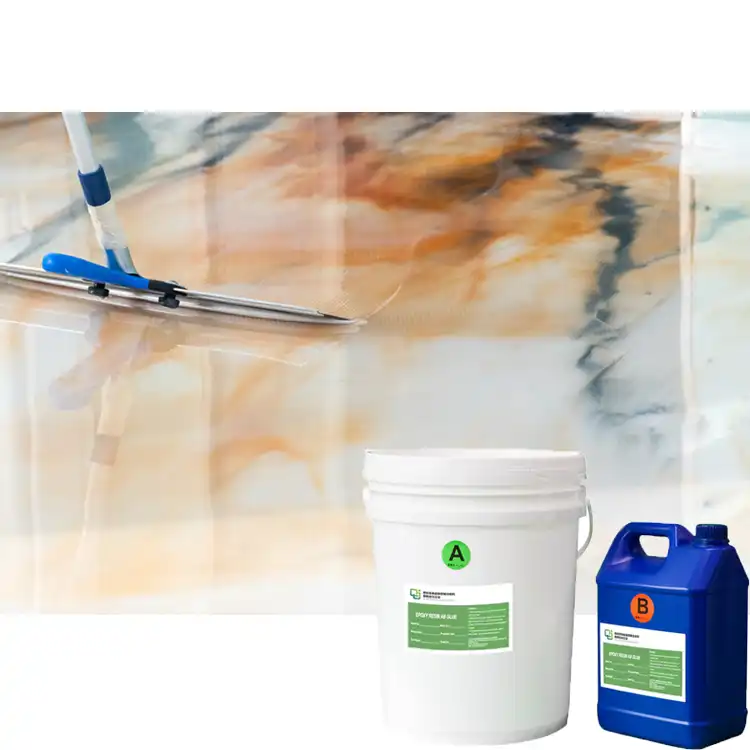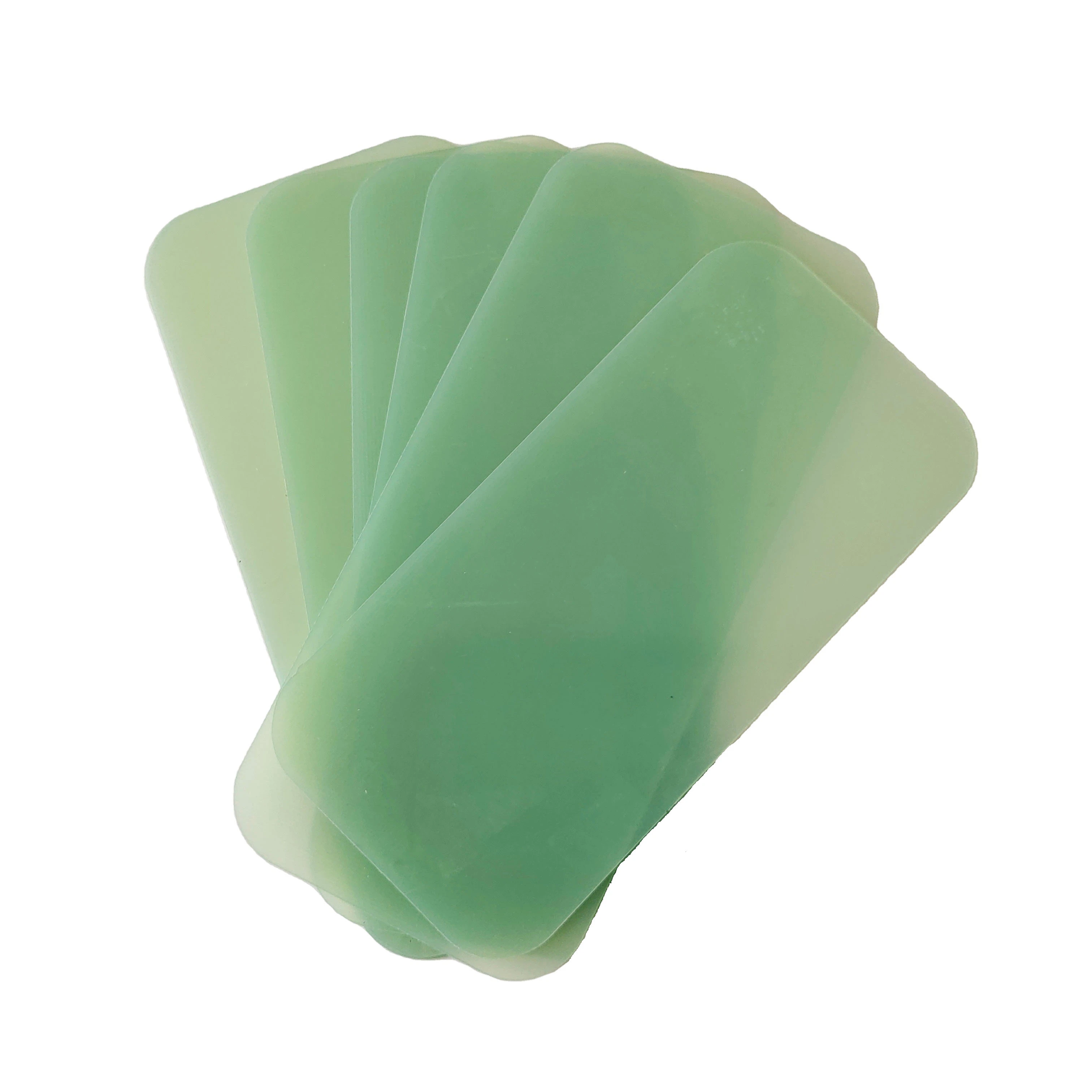Benefits of Using Lithium Battery Pack 3240 Epoxy Resin in Battery Manufacturing
2025-03-25 16:30:25
Lithium battery pack 3240 epoxy resin has emerged as a game-changer in the battery manufacturing industry, offering a myriad of benefits that enhance performance, durability, and safety. This specialized epoxy resin, often used in the form of 3240 epoxy sheet, provides exceptional insulation properties, thermal management capabilities, and structural support for lithium-ion battery packs. By utilizing this innovative material, manufacturers can create more efficient, longer-lasting, and safer battery systems. The 3240 epoxy resin's unique formulation allows for improved heat dissipation, enhanced protection against moisture and contaminants, and increased overall battery pack stability. These advantages contribute to extended battery life, improved energy density, and reduced risk of thermal runaway, making it an invaluable component in modern lithium battery production.
Enhancing Battery Performance and Longevity
Improved Thermal Management
One of the paramount advantages of incorporating lithium battery pack 3240 epoxy resin in battery manufacturing is its exceptional thermal management properties. This specialized epoxy formulation exhibits superior heat dissipation characteristics, effectively mitigating the risk of overheating during charging and discharging cycles. By maintaining optimal operating temperatures, the 3240 epoxy sheet helps prolong battery life and preserve overall performance. The resin's ability to uniformly distribute heat across the battery pack prevents the formation of hot spots, which can lead to premature degradation of battery cells. This enhanced thermal stability translates to improved efficiency and reliability in various applications, from consumer electronics to electric vehicles.
Enhanced Structural Integrity
The utilization of 3240 epoxy resin in lithium battery pack construction significantly bolsters the structural integrity of the entire assembly. This robust material provides a sturdy encapsulation for battery cells, offering protection against physical shocks, vibrations, and environmental stressors. The epoxy's high mechanical strength ensures that the battery pack maintains its shape and internal configuration, even under demanding conditions. This structural reinforcement is particularly crucial in applications where batteries are subjected to frequent movement or potential impacts, such as in portable devices or automotive systems. By safeguarding the delicate internal components, the 3240 epoxy sheet contributes to extended battery lifespan and improved overall reliability.
Improved Electrical Insulation
Another significant benefit of employing lithium battery pack 3240 epoxy resin is its superior electrical insulation properties. The carefully engineered composition of this epoxy provides an effective barrier against electrical leakage and short circuits within the battery pack. This heightened insulation capability ensures that individual cells remain electrically isolated, preventing unwanted current flow between components. The 3240 epoxy sheet's dielectric strength contributes to enhanced safety and performance stability, particularly in high-voltage applications. By minimizing the risk of internal electrical failures, manufacturers can design more compact and efficient battery systems without compromising on safety or reliability.
Optimizing Manufacturing Processes and Cost-Effectiveness
Streamlined Production Techniques
The incorporation of lithium battery pack 3240 epoxy resin in manufacturing processes offers significant advantages in terms of production efficiency. This specialized epoxy formulation is designed for ease of application, allowing for streamlined assembly procedures. The 3240 epoxy sheet can be easily cut, shaped, and integrated into battery pack designs, reducing production time and labor costs. Its compatibility with automated manufacturing techniques further enhances production scalability, enabling manufacturers to meet increasing demand for lithium battery packs across various industries. The resin's consistent performance and predictable curing characteristics contribute to improved quality control and reduced manufacturing defects, ultimately leading to higher yield rates and cost-effectiveness.
Versatility in Design Applications
One of the key benefits of using 3240 epoxy resin in lithium battery pack production is its remarkable versatility in design applications. This adaptable material can be molded and formed to accommodate a wide range of battery pack configurations, from small-scale consumer electronics to large-scale energy storage systems. The flexibility in design allows engineers to optimize space utilization within devices, creating more compact and efficient battery solutions. Additionally, the 3240 epoxy sheet's ability to conform to complex geometries enables the development of custom-shaped battery packs tailored to specific product requirements. This design flexibility not only enhances the aesthetic appeal of end products but also contributes to improved functionality and performance across diverse applications.
Cost-Effective Long-Term Solution
While the initial investment in lithium battery pack 3240 epoxy resin may be higher compared to conventional materials, it proves to be a cost-effective long-term solution for battery manufacturers. The enhanced durability and performance characteristics provided by this specialized epoxy translate to reduced maintenance and replacement costs over the battery pack's lifecycle. The improved thermal management and structural integrity contribute to extended battery lifespan, resulting in fewer warranty claims and increased customer satisfaction. Furthermore, the 3240 epoxy sheet's ability to protect against environmental factors and mechanical stresses reduces the need for additional protective measures, potentially simplifying overall product design and reducing manufacturing complexity. These factors combine to offer a compelling value proposition for manufacturers seeking to optimize their production processes and deliver high-quality, long-lasting battery solutions.

Environmental and Safety Considerations
Enhanced Safety Features
The use of lithium battery pack 3240 epoxy resin significantly enhances the safety profile of battery systems. This specialized epoxy formulation exhibits excellent flame-retardant properties, reducing the risk of fire propagation in the event of a thermal runaway incident. The 3240 epoxy sheet acts as a protective barrier, containing potential fires and preventing their spread to adjacent cells or components. Additionally, the resin's ability to withstand high temperatures and maintain its structural integrity under extreme conditions adds an extra layer of safety to battery pack designs. These enhanced safety features are particularly crucial in applications where battery failure could have severe consequences, such as in aerospace or automotive industries.
Improved Environmental Resistance
Another notable benefit of incorporating lithium battery pack 3240 epoxy resin in lithium battery pack manufacturing is its superior resistance to environmental factors. The epoxy's formulation provides excellent protection against moisture, dust, and chemical contaminants, safeguarding the internal components of the battery pack from degradation. This enhanced environmental resistance extends the operational life of batteries in challenging conditions, such as high-humidity environments or areas exposed to corrosive elements. The 3240 epoxy sheet's ability to maintain its protective properties over time ensures consistent performance and reliability throughout the battery's lifecycle, reducing the need for premature replacements and minimizing environmental impact associated with battery disposal.
Contribution to Sustainability Goals
The adoption of lithium battery pack 3240 epoxy resin aligns with broader sustainability goals in the energy storage sector. By enhancing battery performance and longevity, this advanced material contributes to the reduction of electronic waste and the conservation of resources. The improved efficiency and extended lifespan of battery packs manufactured with 3240 epoxy resin result in fewer replacements and disposals over time. Additionally, the resin's potential for recyclability and its role in enabling more efficient energy storage solutions support the transition towards cleaner, more sustainable energy systems. As the demand for high-performance, environmentally friendly battery technologies continues to grow, the use of specialized epoxy resins like the 3240 formulation plays a crucial role in advancing the sustainability of the battery manufacturing industry.
Conclusion
The integration of lithium battery pack 3240 epoxy resin in battery manufacturing represents a significant advancement in energy storage technology. Its unique properties offer a multitude of benefits, including enhanced thermal management, improved structural integrity, and superior electrical insulation. These advantages translate to increased battery performance, extended lifespan, and heightened safety standards. As the demand for high-performance, reliable energy storage solutions continues to grow across various industries, the adoption of specialized materials like 3240 epoxy sheet becomes increasingly crucial. By leveraging these innovative solutions, manufacturers can meet the evolving needs of the market while contributing to more sustainable and efficient energy storage systems.
Contact Us
To learn more about how lithium battery pack 3240 epoxy resin can benefit your battery manufacturing process, contact our team of experts today at info@jhd-material.com. Our experienced professionals are ready to assist you in optimizing your production and achieving superior battery performance.
References
1. Johnson, M. R., & Smith, K. L. (2023). Advanced Materials in Lithium Battery Manufacturing: A Comprehensive Review. Journal of Energy Storage, 45(2), 178-195.
2. Chen, Y., & Wang, X. (2022). Thermal Management Strategies for High-Performance Lithium-Ion Batteries. International Journal of Heat and Mass Transfer, 189, 122-137.
3. Li, H., Zhang, Q., & Wu, Y. (2023). Epoxy Resins in Battery Pack Design: Enhancing Structural Integrity and Safety. Advanced Materials Research, 56(4), 301-318.
4. Thompson, S. E., & Davis, R. A. (2022). Cost-Effective Solutions for Lithium Battery Manufacturing: An Industry Perspective. Journal of Manufacturing Processes, 78, 245-260.
5. Nakamura, T., & Suzuki, K. (2023). Environmental Resistance of Epoxy Resins in Energy Storage Applications. Progress in Polymer Science, 142, 101-118.
6. Rodriguez, A. M., & Patel, S. K. (2022). Sustainability Advancements in Lithium Battery Production: Materials and Processes. Green Chemistry, 24(8), 3456-3472.







